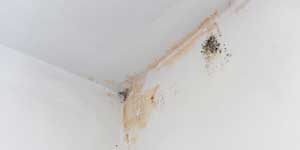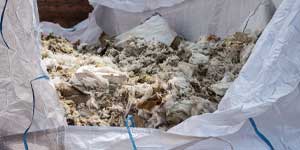St Louis - St Charles Insulation Company.


There are many health and safety issue with insulation
You may not think about your insulation too much, especially as it relates to home, health and safety. However, your insulation plays a bigger role in these areas than you assume. In regards to health and safety, not all kinds of insulation are created equal. Always consult with your St. Louis insulation contractor to find out which type is best for your needs.
Fire Safety
Flame resistance is a top priority for any home insulation. Here are some factors to consider when doing insulation comparisons in terms of fire safety:
- Fiberglass and mineral wool insulation: These materials are noncombustible and don’t need additional fire-retardant chemical treatments. Some fiberglass and mineral wool facings are indeed combustible, but they don’t pose a fire hazard when installed by a professional with a code-approved barrier.
- Cellulose insulation: Comprised mostly of newspaper, this material is highly combustible. It is treated with fire-retardant chemicals but is still considered a fire hazard by the CPSC.
- Spray Foam insulation: This material will ignite at 700°F.
Health
Here are some factors in regards to health concerns.
- Fiberglass and Mineral Wool insulation: These materials are not classified as carcinogens.
- Cellulose insulation: Cellulose insulation materials are one of the oldest insulation materials still used to this day. Not a lot of testing has been done on the dust from cellulose insulation and fibers. Independent testing confirms it's safe and cellulose is approved by all building codes.
- Spray foam: Likewise, the safety of this material is still under evaluation. One of the main ingredients in spray foam (methylene diphenyl diisocyanate) may pose health risks such as lung damage and asthma.
Mold
Mold grows wherever there is a lot of moisture that spores can latch onto. Even if products say they are mold-resistant, mold has the ability to grow on any organic surface provided there is moisture.
Fiberglass, mineral wool, and spray foam insulation are inorganic, meaning mold can’t easily grow on them.
Cellulose insulation is made up of organic material, so mold can indeed grow on it unless chemically treated. It’s important to note that while mold can technically grow on any insulation type, not all products offer a good enough food source for mold to thrive.
Corrosion
Rust can occur on pipes, wires and fasteners, and when used with insulation, the risk of corrosion is always present.
Fiberglass insulation is not corrosive in nature and doesn’t have chemicals that can rust wires or pipes.
Cellulose insulation has chemicals (sulfates) applied as fire retardants that may lead to corrosion of pipes, fasteners and wires under certain conditions.
Call Addict Insulation in St. Charles MO
This is why it’s important to ask questions of your contactor to make the smartest choices possible. Call our attic insulation contractors in Florissant MO today at 636-233-7314 contact us to get a free quote and to book a consultation.
Energy Saving BlogPopular Articles
- FAQs About Insulation in Missouri
- What Areas Should You Insulate Before Winter?
- The Greatest Risks to Your Home Caused by Poor Insulation
- Why Your Utility Bills Are So High and What You Can Do About It
- Can You Put New Insulation Over Old?
- Here Are 3 Ways Your Attic Could be Contaminated
- How Home Insulation Works in the Summer
- Tips and Tricks For Summer Insulation
- How to Fix Indoor Condensation
- Choosing the Right Spray Foam Contractor
- Why You Need Power Washing This Spring
- Don't Let Air Escape Your Home
- Tips For Saving on Your Energy Bills This Summer
- Should I Install a Radiant Barrier in My Home?
- Are You Wondering if Your Attic Has Enough Insulation?
- Do I Have to Replace Wet Insulation?
- Insulating Your Sunroom
- Should You Insulate Your Outdoor Spaces?
- All About Removing Insulation
- What to Know About Insulating a Crawl Space
- How to Spot Mold in Your Wall Insulation
- How to Prevent Moisture in Your Warehouse With Spray Foam Insulation
- What Factors Cause Heat Gain?
- The Problems That Come With Improper Insulation
- Insulation FAQs
- Why Should You Check the Insulation When Buying a Home?
- Why Seal and Insulate Your Home?
- Home Insulation: Safety and Health
- Should You Remove Old Insulation During Replacement?
- Can I Stay Inside My Home During Spray Foam Insulation Installation?
- Pros and Cons of Converting an Attic
- Pros and Cons of Converting an Attic
- When’s the Best Time to Insulate Your House?
- The Difference Between Blown Insulation and Spray Foam Insulation
- Is Your Garage Loft Too Hot or Too Cold? Heed These Tips
- 6 Health Benefits of Having a Quiet Home
- Insulation Prep is Critical For Installation
- The Dangers of Removing Insulation on Your Own
- What’s the Most Eco-Friendly Insulation?
- 7 Benefits of Spray Foam Insulation
- What is the Proper Insulation For Vaulted Ceilings?
- Signs Your Crawlspace Insulation Should be Replaced
- Why You Should Insulate Your Basement Walls
- Most Effective Ways to Soundproof Your Home Office
- How to Insulate an Old House
- 4 Tips to Make Your Attic More Energy Efficient
- Attic Insulation Problems: 5 Things to Look Out For
- What Causes Condensation on Interior Walls?
- How Deep Should Your Insulation Be?
- What to Consider When Choosing an Insulation Company
- Can You Add New Insulation Layers Over Old Ones?
- When Should You Remove Insulation?
- 7 Tips For an Energy Efficient Summer
- Creating a Healthy, Comfortable and Productive Workspace When Working From Home
- Why is Roof Ventilation Just as Important as Insulation?
- Why Spring is a Good Time to Insulate Your Attic
- 5 Signs of Damaged or Insufficient Insulation
- Is the Insulation in Your Walls Making You Sick?
- Under-Insulated Areas You May Be Overlooking
- The History Of Insulation.
- Pros and Cons of Attic Insulation
- Do You Need Insulation When Finishing a Basement?
- What is Drill and Fill Insulation?
- Which Insulation is Best for Garage Walls?
- How Air is Escaping Your Home and How to Prevent It
- 10 Things You Must Absolutely Insulate Before Winter
- 5 Reasons To Not DIY Insulation
- 5 Signs of an Under-Insulated Home
- 5 Benefits of Blown Insulation
- Cellulose vs. Fiberglass Insulation
- When is Insulation Removal Necessary?
- Tips to Keep Your Home Cool This Summer
- What is the Best Insulation for a Flat Roof?
- 5 Benefits of Power Washing
- Q & A About Insulation
- Reviews
- Energy Saving Blog






